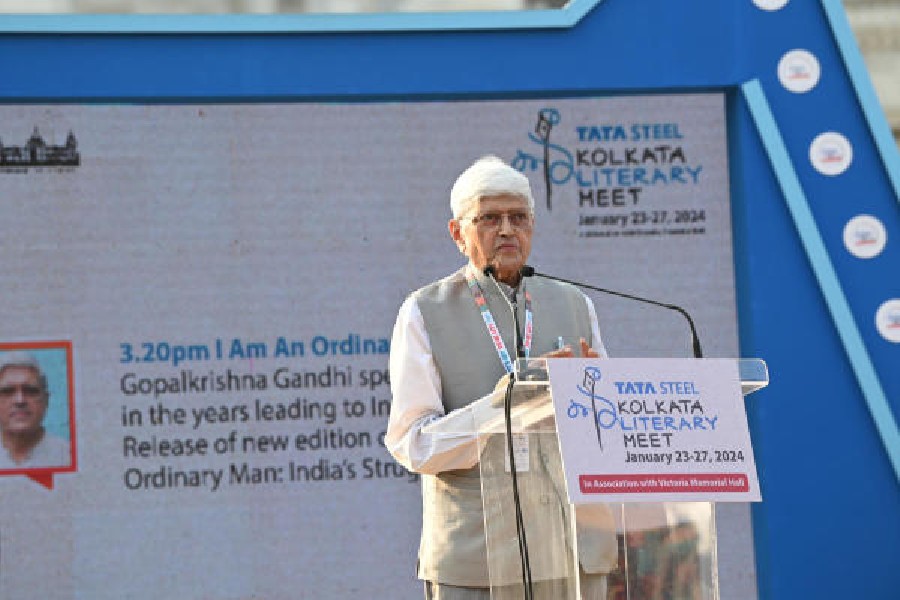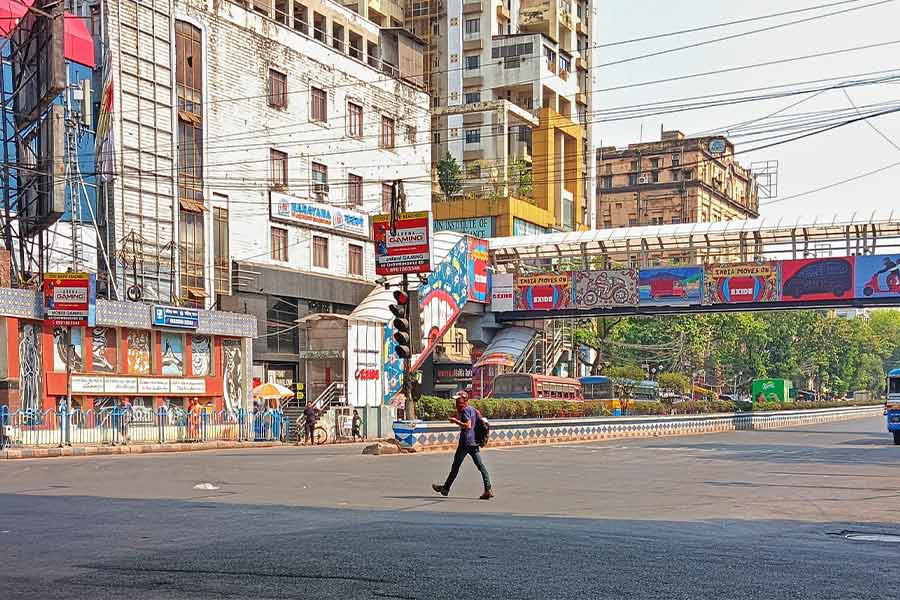Mahatma Gandhi’s connect with the masses was his “ordinary-ness”, the same trait that made him say “Ram”, his grandson Gopalkrishna Gandhi told a Kolkata audience on Saturday.
“According to him, his common link with everybody else was his ordinary-ness. It is what made him say Rama. Not extraordinary-ness but ordinary-ness. It is his ordinary-ness that provoked the physical assaults on him. Because that is our common experience. All of us have, in some form or the other, faced physical assaults. Certainly, psychological assaults. That is what I think makes him an interesting man,” said Gopalkrishna, a former administrator and diplomat who served as the 22nd governor of Bengal from 2004 to 2009.
On Day V of the Tata Steel Kolkata Literary Meet, in association with the Victoria Memorial Hall and The Telegraph, Gopalkrishna, professor of history and politics at Ashoka University, shared snippets from the remarkable life of the “ordinary man” that his grandfather liked to call himself.
Gopalkrishna also read excerpts from I Am An Ordinary Man: India’s Struggle for Freedom (1914–1948), an autobiography he edited and which was released in Kolkata on Saturday.
“He has his detractors today. He never feared or resented detractors. But he would have been rather sorry to see the concoctions of pure imagination set up to revile the man who thought he was such an ordinary man. The great lengths to which distortions have gone to describe him as something he never was. But he had one quality which was not so ordinary. That was foresight,” said Gopalkrishna.
He quoted from Gandhi’s response, in 1915, to Indulal Yagnik (freedom fighter who later led the campaign for a separate statehood for Gujarat), who asked if Gandhi thought that he would have a “huge following” some day.
Gandhi had said: “I do not very much worry about securing large followings. I do anticipate that a time will come when my large following may throw me overboard on account of my strict adhesion to my principles. And it may be that I shall almost be turned out on the streets and have to beg for a piece of bread from door to door.”
“What is that piece of bread that he is seeking from door to door,” Gopalkrishna asked before answering himself.
“That piece of bread is the assurance of people who don’t care whether they are White or Black, Hindu or Muslim. They are just human beings. The assurance being we will not be provoked. We will neither threaten nor be threatened. For we have, not in a sectarian sense, not in an iconic sense, not in a theological sense, not in a votive sense, but in the sense of faith, Rama,” he said.
Ram was instilled in Gandhi’s mind when he was a “scared little boy”, afraid of the dark and many other things.
“There was a remarkable woman called Rambha who was in charge of the household. She told him ‘since you are a scared little kid, I will give you a little secret. Just say the name Rama and you will not be so scared’. So, somehow this name, Rama, percolated into his mind when he was a kid,” said Gopalkrishna.
Ram stayed on with him for the rest of his life, giving him the strength to face assaulters, adversaries and forgive them.
“Saying Rama was not about being tough against toughness, strong against physical strength but to overcome something else. Even the desire for vendetta, the desire to be vengeful. Overcome even that,” said Gopalkrishna.






